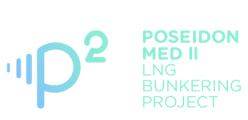Natural gas is widely recognised as the most suitable bridge between the high-carbon fossil fuels era and the low-carbon economy targeted for 2050.
Small-scale LNG is developing rapidly, especially as a transportation fuel and to serve end-users in remote areas or those who are not connected to the main pipeline infrastructure. Both developments are important, particularly in southeast Europe and especially in Greece.
Recently adopted environmental restrictions that will take effect in 2020 make LNG availability, at affordable prices, a crucial factor for the shipping sector’s competitiveness, especially for a country such as Greece, where shipping is the most important industry – accounting for about 7 per cent of its GDP – and that controls more than 20 per cent of the world merchant fleet.
In this region, however, natural gas penetration remains among the lowest in Europe. Entire areas of Greece have no access to natural gas, including western Greece and the islands, and small-scale LNG is a feasible way to change the situation.
The main obstacle to overcome, to develop the necessary infrastructure for LNG bunkering and the small-scale LNG supply chain in general, is the need for high investment in both supply and demand, in a market that is still immature. This is still a chicken-and-egg problem and the Poseidon Med II project can play an important role in dealing with it.
Poseidon Med II continues and unifies the Costa II East (Poseidon-Med) and Archipelago-LNG projects. It is a part of the global project to take all the steps necessary to adopt LNG as marine fuel in the eastern Mediterranean and to make Greece an international LNG marine bunkering and distribution hub for southeast Europe.
This mega-project requires co-operation between 26 partners from three countries to achieve the ultimate target: tackling the chicken-and-egg problem to make LNG available in six core ports in the area.
To do this, we are following a holistic approach, as no port can develop a self-sufficient and sustainable LNG-bunkering station and no shipowner can shift to LNG alone efficiently without a critical mass of neighbouring ports developing supply points and of ship operators as consumers.
Our approach is to undertake specific preparatory actions, tackling both supply and demand along the supply-demand chain – including the LNG terminal, feeder vessels, port infrastructure and the vessels that will use LNG – to reach maturity and allow decision-making.
We plan to carry out several activities within the next five years, covering seven main areas and categories. These relate to the project itself, Revithoussa LNG terminal and ports infrastructure, vessel installations, constructing an innovative pilot vessel in Italy, financial and regulatory issues, and, finally, sustainability and synergies.
Public Gas Corp (DEPA) is co-ordinator and project manager of this initiative. DEPA, Greece’s main gas supplier, introduced natural gas to Greece, achieving the country’s most important energy project of recent decades in the country. DEPA considers Poseidon Med II a priority project that is fully aligned with its strategic initiatives.
source: http://www.lngworldshipping.com/news/view,three-countries-six-ports-26-partners-and-a-plan_42421.htm
 Ελληνικα
Ελληνικα
